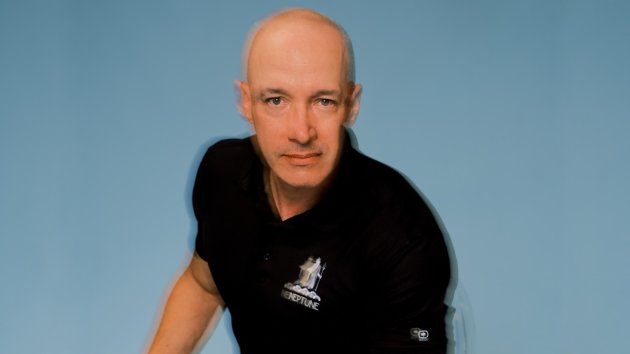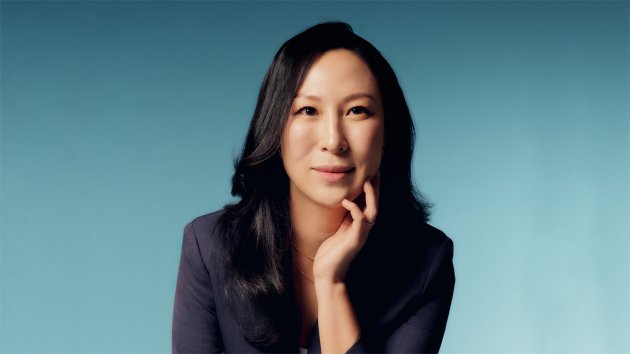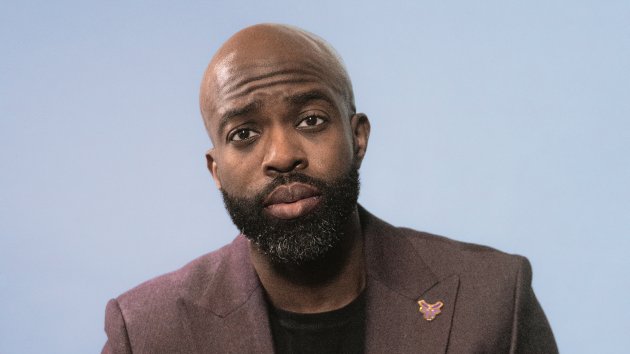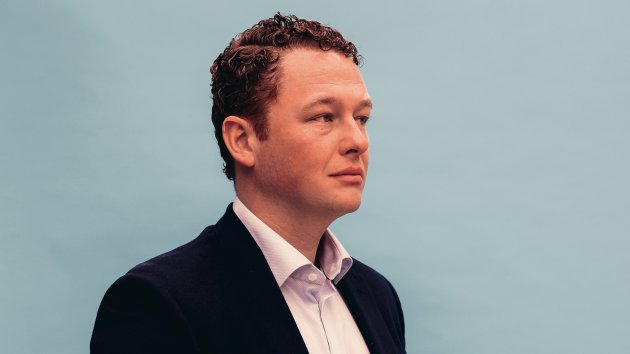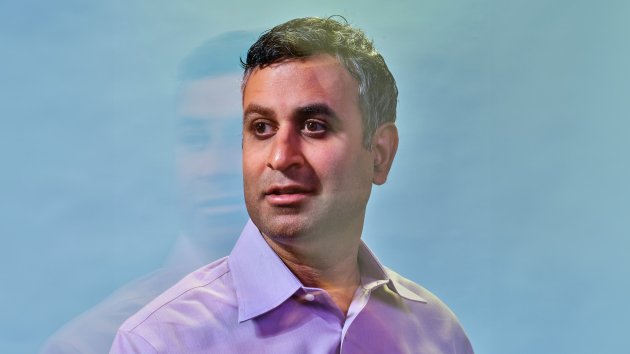AI Gets to Work: How 7 Startups Are Deploying AI Right Now
It's leading edge, it's downright scary--and it's here. Following AI's breakout year, we take a look under the hood at how entrepreneurs are applying the tech and what you need to know to stay competitive.

BY BEN SHERRY, REBECCA DECZYNSKI, KEVIN J. RYAN
FROM THE APRIL 2024 ISSUE OF INC. MAGAZINE
Ever since Alan Turing posed the question "Can machines think?" in 1950, fellow scientists have thrown themselves into programming machines to take over tasks traditionally considered to require human cognition. The central question of his defining "Imitation Game" paper is more essential than ever.
After OpenAI launched its shot across the bow with the November 2022 release of ChatGPT, kicking off a ferocious AI arms race, startups across industries from supply chains to SaaS, and major players including Amazon and Google, accelerated their AI product rollouts. Investors were quick to fan the flames. In 2023, they directed $1 of every $3 into AI companies. The first quarter of 2024 is expected to keep pace, per PitchBook analyst Brendan Burke. Paris-based OpenAI competitor Mistral, not even nine months old, fetched a valuation of $2 billion after a $415 million fund raise in December, which led to deals with Microsoft and IBM earlier this year.
So while AI isn't new, the pace of innovation is having a material effect: chiefly, that AI is becoming more approachable. Already, the use cases for AI--from drafting marketing copy to scrubbing code--are proliferating, as are scarcely imagined ideas for how to run a company better, faster, stronger.
That's not to say the path ahead is free of obstacles, not the least of which is the fear robots could turn on us, as in the most searing works of science fiction.
Until then, we have advice on how to make the most of the tech. In the following pages, you will meet seven savvy entrepreneurs who are embracing AI to do everything from transcribe meetings to craft better-fitting orthotics. You will also learn why LinkedIn co-founder Reid Hoffman has gone all in on AI--calling it the "steam engine of the mind"--and how, if at all, that has any bearing on how you run your company. Time to get to work.
Anna Bofa, Crate founder and CEO.Photography by Laurel Golio
Expanding Opportunity
Anna Boffa
CRATE Founder and CEO
Los Angeles
Crate is a prototypical tech startup. It's founder-led, venture-backed, disruptive, and, increasingly, powered by artificial intelligence. The content scrapbooking platform, founded in 2021 by Pinterest and Google alum Anna Bofa, 37, lets users collect items from all over the internet related to a single topic--say, travel destinations, hobbies, or sports teams--and then uses AI to create relevant suggestions, from restaurants to products to news stories. On the design side, the company leans on Adobe's built-in AI tools to create dozens of product mockups at once.
The company also uses AI programs to create customer personas based on interviews with actual customers. (Bofa says she can't say which program she uses because of a confidentiality agreement with the vendor--but there are plenty, including Insight7, Delve AI, and UXPressia.) The tools, which incorporate details like age, gender, and music and reading tastes, predict how each persona would use the platform, providing Crate with useful feedback that guides its decisions around design and the user experience. "Now you can talk to five people, put it in a model, and it can spit out 100 different personas," Bofa says. "In the past, you would have to talk to 20 people to get 20 personas."
Altogether, the tools have helped reduce the 10-person company's product-testing roadmap, which helped Crate raise a $5 million seed round last year.
AI tools like Writer and GitHub's Copilot have had mixed utility, but Bofa notes that the accuracy problems dissipate for repeatable actions--like implementing Google's login API, for example. The time it saves really adds up. "You don't have to have these massive teams and massive budgets," says Bofa. "You can be just a handful of people with an idea." -Kevin J. Ryan
Trevor Burgess, Neptune Flood Insurance CEO.Photography by Zack Wittman
Analyzing Risk
Trevor Burgess
NEPTUNE FLOOD INSURANCE CEO
St. Petersburg, Florida
No one ever wants to talk to insurance salesmen, but everyone needs policies--for health, home, car, and life. Few understand this antipathy better than 51-year-old Trevor Burgess, who in 2018 bought a controlling interest in the St. Petersburg flood insurer Neptune Flood Insurance from original founders Bill Martin and Jim Albert. Burgess says he invested to help fund the development of Triton, an AI-powered system capable of taking on all of the tasks typically handled by an insurance underwriter.
He was inspired to act after running a bank in Florida for seven years. There, Burgess says he got a crash course on flood insurance. If properties are in a high-risk flood zone, banks have to ensure borrowers have flood insurance or they could get severely fined by regulators. "I realized we could avoid a lot of hassle if we just built an API system to pull down the flood certifications and automatically add them to the file," says Burgess.
The system faced its biggest challenge in September 2022. Before Hurricane Ian tore through Florida, the company fielded 56,000 quotes in a single day.
Burgess further believes Triton has other less obvious benefits: While human underwriters can make educated guesses about the inherent riskiness of any given property, the AI model can find "hidden gems" of causation that may result in a flooded home.
As Triton finds these connections, Neptune's 15-person customer success team assists real-life agents with quotes and supports more than 170,000 customers. Burgess admits that some things--like speaking to a homeowner who has just lost everything in a hurricane--require a human touch. -Ben Sherry
Eunice Park, AIREM founder.Photography by Evelyn Freja
Building Trust
Eunice Park
AIREM Founder
Syosset, New York
When it comes to recommending dermatology treatments and assessing their results, an objective observer comes in handy. Even better if that observer isn't human.
Since December 2022, when Airem started using skin analysis software from the Taipei-based AR and AI beauty technology company Perfect Corp., the chain of New York K-beauty medspas has seen a 31 percent uptick in repeat visits and a 47 percent surge in average expenditure per visit. Airem founder Eunice Park, 44, affirms that those results were earned honestly--that is, they weren't the product of upselling cosmetic treatments to vulnerable consumers. "The people who come to us, they've done a lot of research," adds Park. "We're not selling anything to them."
Indeed, what customers do get when they walk into an Airem is a consultation, which involves screenings using Perfect's software and an iPad. After about 10 minutes, out comes a skin score based on photographs measuring 14 different parameters, including wrinkles, sunspots, and texture. While it's true that this kind of analysis has traditionally been available in cosmetic dermatologists' offices, the screenings have tended to take longer and require bulky dermatology equipment that needs regular maintenance.
It's about providing efficient service, says Park. But building trust is also vital. Certain skin improvements may not be as apparent to clients, who look in the mirror every day, so the technology offers an important sense of before and after, Park says: "We want to show you that what you're investing in is making a difference." -Rebecca Deczynski
Larry Schwartz, Aetrex CEO.Photography by Joel Arbaje
Eliminating Guesswork
Larry Schwartz
AETREX CEO
Teaneck, New Jersey
Larry Schwartz, 56, has been using technology to help his footwear customers get the best fit for decades, and now he hopes artificial intelligence will help him share the love with the entire industry.
After taking over Aetrex in 1998 from his father--his grandfather and great uncle started the company in 1946--Schwartz noted that roughly 30 to 40 percent of online footwear sales were returned because of incorrect sizing.
Schwartz tried to resolve the issue with a number of tools over the years--depth-sensing cameras, capable of taking 3-D scans, for instance, led to the 2018 release of the company's flagship fit product, Albert. Now, the latest version, dubbed Albert 2 Pro, which captures both 3-D foot scans and foot pressure data, can be found in shoe stores across the globe. When paired with Aetrex's AI-powered FitGenius platform, the company can recommend specific shoe models and sizes by automatically cross-referencing a customer's unique 3-D foot profile with the purchase history of customers with similar-size feet.
Schwartz is now in the middle of adding a new line of business: Foot.com, a B2B-focused portal containing Aetrex's vast array of data from more than three million foot scans. This data is used by footwear developers like Ecco, Boa, and Lululemon when creating new shoes, and Schwartz says it could help standardize sizes across brands and drastically lower returns. "AI is enabling us to take the guesswork out of sizing," says Schwartz, "and this data will help the industry take the guesswork out of shoe development." -B. S.
Delali Dzirasa, Fearless founder and CEO.Photography by Schaun Champion
Organizing Principles
Delali Dzirasa
FEARLESS Founder and CEO
Baltimore
For digital-services firm Fearless, a reliance on technology is innate. It became a necessity, however, as projects--like the website builds for the state of New Jersey and Florida's Pinellas County school system--grew in complexity. The company, with more than 250 employees, sought to make project management and internal communication more efficient.
Enter artificial intelligence. Fearless uses tools like Otter.ai, Fireflies.ai, and, most recently, Zoom's built-in services to transcribe meetings. It then feeds those transcripts into large language models like OpenAI's ChatGPT and Anthropic's Claude using custom-built platforms that ensure sensitive information can't be accessed by outsiders. The goal is to extract sentiment from a dozen or more stakeholders on a call, organize their feedback into note form, and create recaps of the conversations. The effect has been powerful, according to Fearless co-founder and CEO Delali Dzirasa, 43. "We've found that it streamlines our processes and reduces errors," he says. "It also helps us make better-informed decisions when designing our products."
That extends to the company's back-end development. Tech chief Ravi Gourineni and his team are developing guidelines on when and how coders should use AI tools for engineers, such as GitHub Copilot. For now, the company is erring on the side of caution and telling coders to check any suggestions from AI--line by line. "We're enthusiastic about AI," says Dzirasa, "but we also take a balanced approach."
Engineers have found another use for AI, though. They often turn to ChatGPT and Beautiful.ai to help write internal guidance or presentations. "Sometimes we might know what we want to say, but we don't know how to articulate it," says Gourineni. "It's helping those people immensely." -K. J. R.
Luke Saunders, Farmer's Fridge founder.Photography by Lawrence Agyei
Measuring (and Anticipating) Demand
Luke Saunders
FARMER'S FRIDGE Founder
Chicago
Luke Saunders didn't set out to eliminate food waste--it's just the welcome byproduct of his company's foray into artificial intelligence.
After founding fresh-food vending machine company Farmer's Fridge in a shared kitchen space in Chicago's West Town in 2013, the now 38-year-old entrepreneur learned quickly that food waste was fixing to be a big problem. By the time he had a small collection of five to 10 machines, which he calls fridges, Saunders was selling only about half his inventory, and donating or composting as much of the rest as he could. In those early days, he says keeping his fridges stocked with leafy greens without tossing out heads of rotten lettuce was "completely impossible."
Things improved when Saunders hired a data science intern to build an AI model, using Uber's publicly available algorithm for determining surge pricing, that could gauge the demand for certain meals at specific locations. While Uber uses the algorithm to boost prices at busy times, Farmer's Fridge uses it to track which meals are most popular at specific machines, and then stocks those locations with the meals most likely to sell through.
With this predictive model, Farmer's Fridge is able to place orders with its ingredients suppliers months in advance, which Saunders says helps lower prices--and the knowledge of what's going to pop also helps curb food waste. By early 2024, the company's fleet of more than 100 logistics vehicles were restocking nearly 1,200 smart fridges upward of 20 times a week.
Saunders has recently also started using AI to adjust item pricing in real time. If the Turkey Cobb isn't selling at a particular location, for example, the Farmer's Fridge will automatically discount it--and notify nearby customers with the company's mobile app about the deal. The overall effect, according to Saunders, is that food waste is down to less than 4 percent. -B. S.
Sumir Meghani, Instawork co-founder and CEO.Photography by Kelsey McClellan
Revving-up Reviews
Sumir Meghani
INSTAWORK Co-founder and CEO
San Francisco
The flexible work marketplace Instawork had always used an algorithm to match gig workers with employers. But before last summer, the then eight-year-old company was relying on its staffers to identify when gig workers might be eligible for new kinds of jobs. "It wasn't very efficient," says co-founder and CEO Sumir Meghani, 42. Plus, matches would often end in unfilled and canceled shifts. So naturally, Meghani jumped at the chance to ease the process.
In May 2023, he and a team of four engineers developed a proprietary AI that scours a worker's previous reviews on Instawork's platform for relevant information. If a warehouse job requires someone to be able to lift 100 pounds, for example, the company's tech can scan the feedback left by managers at similar gigs and surface only those workers who have shown competencies in heavy lifting. Since applying the AI layer, the roughly 450-person company has seen a 30 to 50 percent improvement in the quality of its matches, which is measured using factors like the number of completed shifts and the hiring business' satisfaction.
"Given our scale, doing the matching by hand would be impossible," says Meghani. "There's no way a human could ever do that." He adds that clients and workers themselves are pleased with the results, as they can access additional job placements.
"A lot of people are thinking about how AI will affect the lawyers, the engineers, the accountants," says Meghani. "I'm thinking about how it can help a bartender make some extra money." -K. J. R.

